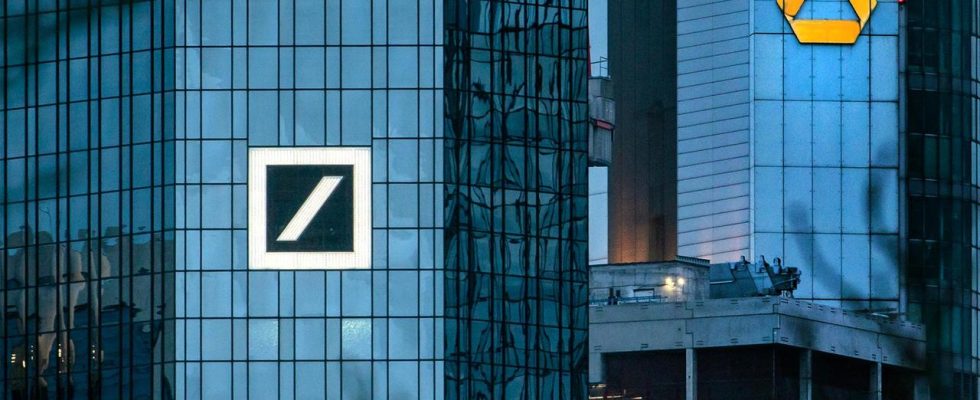analysis
Once again there is speculation on the financial markets about a mega takeover in the German banking sector. How realistic is it that Deutsche Bank and Commerzbank will get closer again?
It is the classic speculation in the financial sector: the speculation that there could be a major bank merger on German soil. Traditionally, the focus has been on Commerzbank, which was previously the smallest of the “big three” and was repeatedly seen as an obvious takeover target. Years ago, a stock market trader joked that Commerzbank had already been in bed with all conceivable partners except the “Sparkasse Peking”.
In the summer of 2001, a billion-dollar takeover actually took place – although not from Commerzbank. After Dresdner Bank had unsuccessful merger talks with Commerzbank and Deutsche Bank, it was swallowed up by the insurance giant Allianz, which incorporated the financial institution into its group in accordance with the logic of the “all-finance concept” at the time.
Only seven years later, the significantly shrunken Dresdner Bank was then passed on to the new second-in-command, Commerzbank, with the profound financial crisis of 2007/2008 playing a major role.
Speculation moves bank shares
So now there is new speculation on the market, which recently moved the shares of Deutsche Bank, Commerzbank and the Dutch ABN Amro. The Bloomberg news agency reported on Friday after the market closed, citing people familiar with the matter, that Deutsche Bank had recently increasingly discussed possible takeovers. These also included the names of European banks such as Commerzbank and ABN Amro.
For Dieter Hein, banking expert at fairesearch, such new mind games do not come as a surprise: “Even given the risk of potentially becoming a takeover candidate yourself, it is not so far-fetched that such options should be explored. That is part of the actual job of every board member .”
“Commerzbank has nothing that Deutsche Bank needs”
However, the industry expert believes that a merger between Deutsche Bank and Commerzbank is unlikely. Commerzbank has nothing that Deutsche Bank really needs. Even in the branch business, the synergy potential is still lower than it was four years ago, given the recent wave of closures.
At that time, the two Frankfurt financial institutions spoke directly about a merger, but then ended the talks in April 2019. The driving force behind this was the federal government at the time. The then Finance Minister Olaf Scholz had complained that local banks no longer had the “scale and globality” necessary to support companies in their business worldwide – an assessment that is now shared by only a few experts.
In any case, the federal government had a healthy self-interest in finding a value-enhancing solution for its 15.75 percent share package in Commerzbank, which was left to it as a legacy of the financial crisis. In 2009, the German state became a co-owner of a large private bank for the first time – with Commerzbank initially holding a 25 percent stake.
The federal government is likely to shy away from risks
Industry expert Hein doubts that politicians are still interested in merging the two institutes. Apart from possible antitrust problems, the federal government is likely to shy away from further concentration of risk in the banking sector.
Only recently did the case of Credit Suisse show how quickly a major bank can falter – in this case, another institution, UBS, was ready to support its competitor. A single “national champion” who is “too big to fail” would pose significant problems for politicians if the worst comes to the worst.
Mergers bring numerous problems
In addition, industry observers are still waiting for a bank merger to actually translate the promised synergies into profits. The massive problems in integrating the different IT systems seem to be typical for the industry. These could already be observed when Dresdner Bank was integrated into Commerzbank.
Deutsche Bank has even bigger problems with the integration of Postbank and its technical systems. With the reprimand from the financial regulator BaFin, this turned into a real PR disaster that the industry leader has not yet come to terms with.

